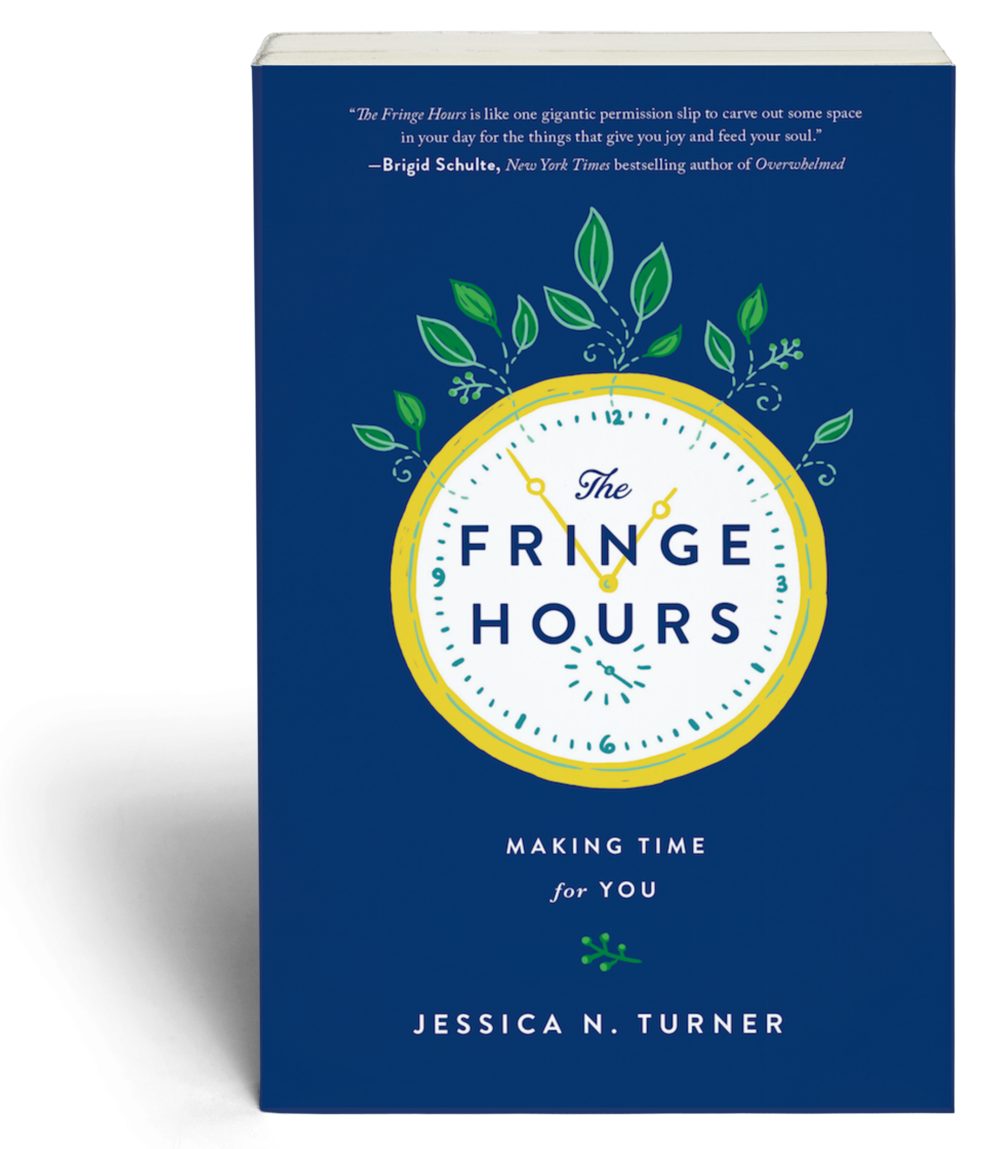‘The Fringe Hours’ and Why the Self-Care Movement Can Be Self-Destructive

By CLAIRE SWINARSKI
I really wanted to like The Fringe Hours.
I did! I swear I did. The cover is beautiful, the author’s blog is one I peruse regularly, and I liked the message. But while I flipped the pages, somewhere tangled up in all of that good intention was a big fat ball of uneasiness.
The Fringe Hours, by blogger Jessica Turner, does have good intentions. The book describes itself as “[empowering] women to take back pockets of time they already have in their day in order to practice self-care and do the things they love.” It’s a manifesto preaching self-love, grace and the need to stop social media comparisons. Marketed toward our “lean in” generation of women, it describes a familiar feeling of needing to be all things to all people: a feeling of constant failure because you’re just not doing enough. It then essentially tells you to take those feelings and smash them with a sledgehammer.
And it somewhat succeeds. Turner makes a very compelling case in her first two chapters for the importance of taking time to do things that feed your soul.
“We were not created to be everything for everyone . . . Rather, we were created to be all we can be for the One who created us. And by taking care of ourselves and using our talents, we are a blessing,” Turner writes on page 48.
This is true, and this needs to be screamed from the rooftops to all of us women who work 9 to 5 jobs and then come home and feel the unshakeable pressure to keep an immaculate house and cook a healthy, Instagram-worthy meal and do it all looking flawless for our husbands. That idea of taking care of ourselves over stupid things like dusting the baseboards is important and true. Turner writes about feeling embarrassed for leaving dirty dishes over night. I’m like, leave ‘em, sister. I got your back. I’ve woken up and been out of bowls for cereal plenty a time.

The part where Turner gets a little lost is when she talks about other people. She writes about asking her kids to go back to bed in the morning because Mommy’s working. In one particularly cringe-worthy anecdote, she writes about a woman she knows named Kristen calling to cancel on a friend going through a hard time because, according to page 143, “Kristen looked at her to-do list and realized that the outing would result in a lot of stress in her own life.” Kristen is lauded as a hero in Turner’s world instead of, I don’t know, a selfish, crappy friend.
Because we should put ourselves before the dirty dishes and the dusty baseboards. We should (at times) put ourselves before the piles of laundry and the Dr. Oz-approved dinners and the extra piles of work we technically could be doing. We are women; hear us roar and then let us take naps.
But we shouldn’t be putting ourselves before other people. We shouldn’t be canceling on friends because we’re stressed out. Taking a step back and holding The Fringe Hours at arm’s length makes it slowly start to dawn on you that you’re reading a 253-page advocacy for selfishness. Turner writes about suggesting a Facebook page to her child’s school principal and then being horrified that they would, gasp, expect her to possibly help run it since she’s a blogger and social media guru. Turner’s main priority seems to be not stressing herself out, so instead she opts to do pretty much nothing that won’t pay her bills or bring her comfort.

Selfless has become a word we avoid. Those selfless losers who are constantly stressed out and don’t practice enough self-love meditation in the morning. Every pendulum has a return swing—there are those of us that are excruciatingly burdened, running around like chickens with their heads cut off to try and please everyone they encounter to the fullest. Then there are those of us who are so focused on self-care that we forget the simple beauty of putting others first.
Caring about other people more than yourself—Turner seems to have lost sight of this precious idea in all of The Fringe Hours’ glorification of “self-care.” But maybe, just maybe, if she realized how important it is to sometimes get lost in caring for other people, she would have more success finding herself.
Claire Swinarski is a writer, wife and Wisconsin Badger with a passion for library books and all things girl power. She spends a lot of time drinking coffee and explaining Catholic feminism online. She can be found on Twitter (@claireswinarski), Instagram (whatclairesaw) or her personal blog (thisisthewonder.com).



